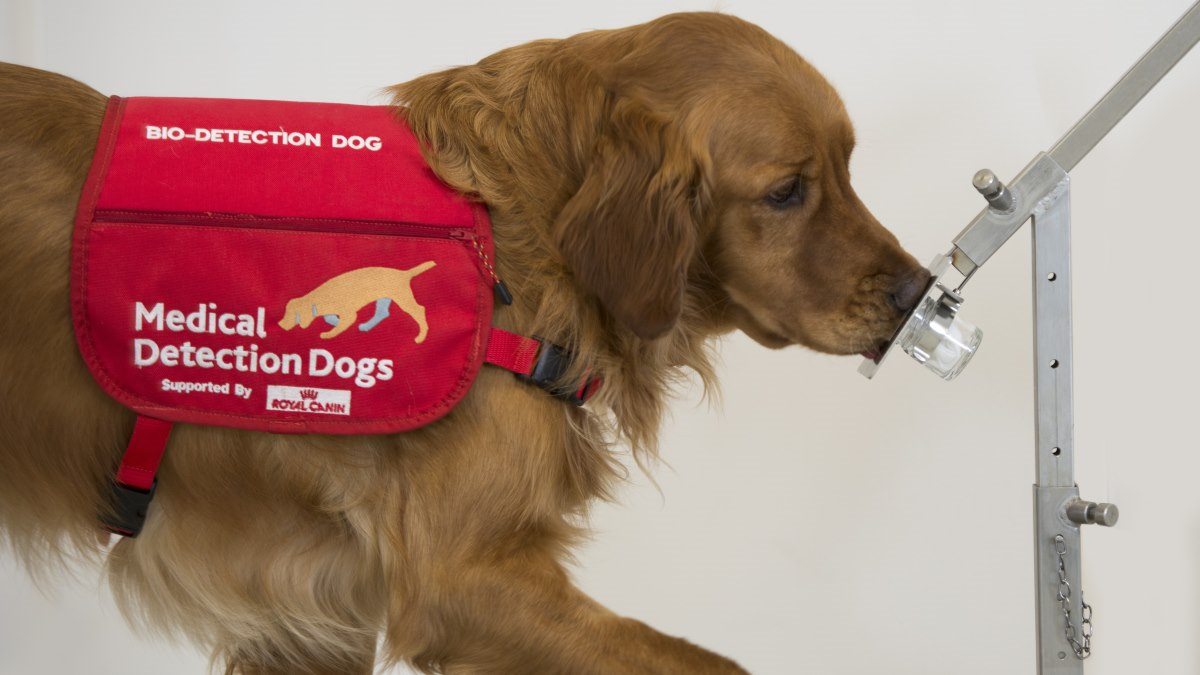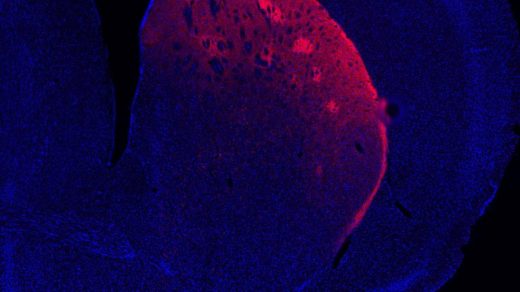A golden retriever named Bumper and a black labrador called Peanut have been trained to pick up the scent of Parkinson’s disease (PD) – a progressive neurological condition affecting more than 8.5 million people worldwide.
The dogs were taught to distinguish between sebum swabs from people with and without PD. Their efforts, published in a study in the Journal of Parkinson’s Disease, bring scientists a step closer to developing a faster and more accessible method for early PD detection.
“There is currently no early test for PD and symptoms may start up to 20 years before they become visible and persistent leading to a confirmed diagnosis,” says Claire Guest, CEO and chief scientific officer of the charity Medical Detection Dogs which trained the dogs.
“Timely diagnosis is key as subsequent treatment could slow down the progression of the disease and reduce the intensity of symptoms.”
Lead author of the paper Nicola Rooney, an associate professor of wildlife health and conservation at the University of Bristol, adds: “Identifying diagnostic biomarkers of PD, particularly those that may predict development or help diagnose disease earlier, is the subject of much ongoing research.”
Dogs have powerful olfactory senses and have been trained to detect the odours of many different diseases, from prostate cancer to malaria and COVID-19. They pick up on changes in volatile organic compounds (VOCs) released by urine, faeces, skin swabs and breath samples in response to changes happening in the body.
An early, non-motor symptom of PD is “seborrheic dermatitis” in which excessive sebum (a waxy, oily fluid) is excreted from the sebaceous glands.
“This is associated with lipid dysregulation and could potentially be used as an indicator for the disease,” write the authors of the study.
The new findings support earlier research which found that dogs can be trained to detect the smell of Parkinson’s disease in sebum swabs. However, according to the authors, these previous efforts “provided limited information on the dog’s training and testing”.
“Since the dogs are effectively the measuring instrument, it is important to provide full details of their training, calibration and testing,” they write.
In this study, Bumper and Peanut were trained by a professional dog trainer using an established protocol. They were trained on skin swabs taken from patients shortly after PD diagnosis, and from a control group which ranged from healthy individuals to patients with other neurological conditions.
The samples were presented on a stand system. The dogs were rewarded for correctly indicating a positive sample and for correctly ignoring a negative sample.
They were then tested in double-blind trials where neither the dog, its trainer, or the researchers knew which samples were which.
“The dogs in this study achieved high sensitivity and specificity and showed there is an olfactory signature distinct to patients with the disease,” says Rooney.
Bumper and Peanut correctly identified samples taken from patients with PD (sensitivity) 70% and 80% of the time, and from patients without PD (specificity) 90% and 98% of the time.
Bumper was slightly less adept at the task, which the researchers say “may reflect personality variations or subtle differences in training” between the 2 dogs.
Still, Rooney says that sensitivity levels of 70% and 80% are well above chance: “I believe that dogs could help us to develop a quick non-invasive and cost-effective method to identify patients with Parkinson’s disease.”
Perdita Barran, professor of mass spectrometry at the University of Manchester and study co-author says: “This study adds to the growing body of evidence showing that simple, non-invasive skin swabs can be used to diagnose Parkinson’s disease, offering a faster and more accessible method for early detection.”
![]()
This was shown first on: https://cosmosmagazine.com/health/body-and-mind/dogs-sniff-out-parkinsons/



